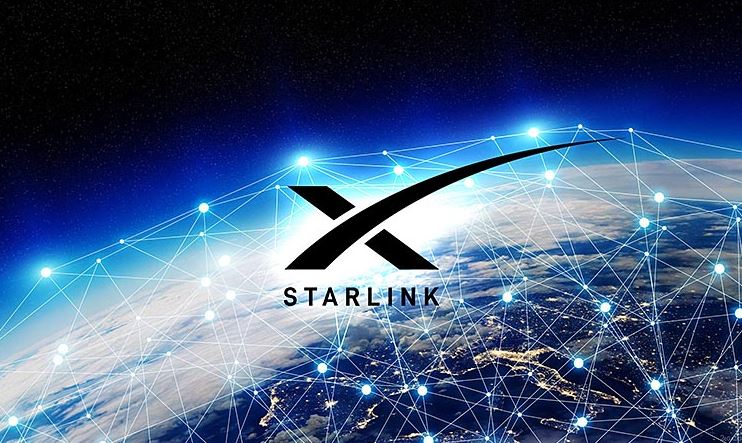
Starlink is a satellite internet company controlled by controversial billionaire Elon Musk through his Space Exploration Technologies Corp. (SpaceX).
Starlink, Musk’s internet-from-space business, was planned to enter the Philippine market in December 2022 and compete with existing providers.
Many people in the country, particularly those in the IT business, saw the move as a welcome development.
Following the initial hit of the COVID-19 pandemic in 2020, the Philippines’ weak internet and telecommunications infrastructures were once again thrown in the limelight.
The proliferation of online jobs and remote work arrangements has highlighted the country’s need for better internet connections.
To that aim, the Philippines’ Department of Information and Communications Technology (DICT) has enlisted Musk’s SpaceX to assist in resolving the country’s internet connectivity issues.
In November 2021, the DICT met with SpaceX representatives to discuss the formation of Starlink Philippines, a Philippine-registered firm that will be a wholly-owned subsidiary of SpaceX.
Unfortunately, due to unforeseen circumstances, the company’s Philippine launch has been pushed back until the first quarter of 2023.
About Starlink
SpaceX operates Starlink, a satellite constellation-based internet service.
It’s both a division inside SpaceX and the name of the company’s developing network of artificial satellites circling the Earth.
In contrast to other internet providers that rely on cable technology (e.g., fiber optics), Starlink transmits internet data to its subscribers through low-orbiting satellites and radio transmissions.
Yet, Starlink is not the only internet service that uses the vacuum of space to transmit internet data.
Other companies, including as Viasat, Amazon, OneWeb, and HughesNet, have also been around for a while.
Starlink is distinguished from other satellite internet providers by its use of thousands of tiny satellites rather than a few large ones.
Although being less cost-effective than large satellites, Starlink is able to operate its fleet of tiny satellites since it is a subsidiary of SpaceX.
Starlink Philippines
Starlink’s space-based internet is, understandably, not inexpensive.
SpaceX charges USD 599 or Php 33,482 per unit, which is a substantial fee, especially for individuals living in distant places.
Meanwhile, its internet access service is marked at USD 99 or Php 5,535 monthly – not a cheap price either.
The DICT stated that the government will bear the costs of connecting distant communities to Starlink. These communities would then be watched until their aggregate revenue increased and the costs could be passed on to them.
Yugatech, the Philippines’ largest and oldest technology website, also provided price strategies shared by one of its readers.
Starlink Enterprise Kit
- Php 176,176 (starting kit including taxes) (starter kit plus taxes)
- Php 3,824 (Data Lake and local handling costs) (Data Lake and local handling fees)
- Php 21,600 (VAT) (VAT)
- TOTAL: Php 201,600
Starlink Maritime Kit
- Php 644,376.99 (starting package including taxes) (starter kit plus taxes)
- Php 5,624 (Data Lake and local handling costs) (Data Lake and local handling fees)
- Php 78,000 (VAT) (VAT)
- TOTAL: 728,000 PHP
It should be noted that the rates shown above do not include installation service fees or travel expenses for the professionals that install the equipment.
[February 22, 2023] Starlink updates – now available
Elon Musk’s SpaceX announced on February 22 that their satellite internet service, Starlink, is officially operational in the Philippines. Yet, there has been no official notification regarding the actual start of the service or the availability of Starlink kits.
Additionally, consumers may now access to Starlink’s website to check the availability of the satellite internet service in their location.
After entering the address, the order form will display the price that consumers must pay. If you order in the Ortigas/Pasig region, you will be charged PHP2,700 a month for service and PHP29,320 for hardware.
Starlink was intended to arrive in the Philippines in December 2022, however there were numerous setbacks. The Philippines is now the first Southeast Asian country to welcome Musk’s high-speed satellite internet enterprise.
The importance of robust market competition and Starlink
Competition, like any other business, generates creativity.
The arrival of Starlink Philippines will undoubtedly ruffle market feathers.
The prospect of having their customers seduced by a new supplier might provide an incentive for local providers to improve their services.
Even today, Smart Communications Inc., run by Pangilinan, has turned to Omnispace, a Washington-based internet service provider. It intends to examine the viability of space-based 5G internet access for Smart network customers.
